Join us for real-time updates from Automotive Evolution North America 2024 at The Henry Hotel in Dearborn on 30-31st October, where industry leaders from Volkswagen, GM, Toyota, Stellantis, Ford and many more will hold key sessions and panels on topics including smart manufacturing, sustainability, EV plants, and digital tools.
We are back for our second edition of the AMS Automotive Evolution North America 2024 in Michigan! As North American OEMs and suppliers upgrade facilities and build new EV and battery plants, the conference will explore strategies to meet evolving customer demand and regulatory challenges.
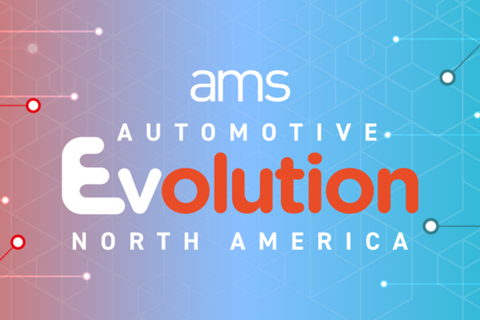
Speakers including Christopher Glover from Volkswagen Group of America, Chattanooga Plant, Jaime Moore from Toyota Motor North America Research and Development Center, Dr. Sardar Asif Khan from Stellantis, Marc Dugas from Ford, Brian Breuhan from GM and many others will deliver insightful sessions.
Throughout the event, we’ll be providing live blog coverage with real-time insights, updates, and key takeaways. In the meantime, keep reading our countdown blog for some speaker interviews and articles we covered in the past that will build some groundwork for next week!
You can still buy passes to the event. Click here to register!
31st October
“Lean isn’t just one department; it has to be the entire organisation”
After a quick network break, our chief content officer Chris Ludwig is joined by Dr. Sardar Asif Khan, continuous improvement lead, parts and services, Stellantis and Jeremy Keating, vice-president of operations – Kokomo transmission, Stellantis and shared invaluable insights on how lean methodologies are critical for navigating rapid transformation in automotive manufacturing.
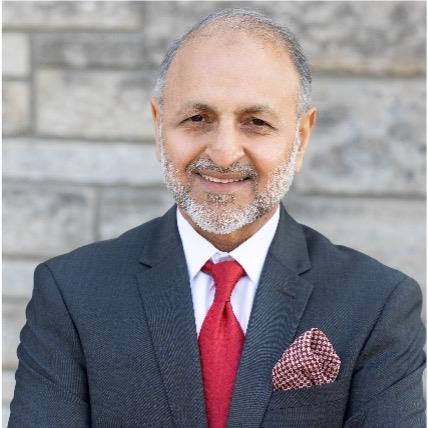
In a keynote, Dr Sardar Asif Khan shared his extensive journey in lean manufacturing, highlighting its ongoing relevance in an era dominated by digital transformation, AI, and Industry 4.0. Despite the rapid technological advancements in the industry, he emphasised that lean manufacturing remains critical, complementing these tools rather than replacing them. “Lean is not just a set of tools; it’s a strategic approach to continuously navigate through the challenges of a transforming industry,” he emphasised. He added that lean manufacturing helps companies stay efficient and competitive by reducing waste and focusing on value-added activities, making it applicable across various sectors, including healthcare and software, not just traditional manufacturing.
Reflecting on today’s competitive landscape, Dr Khan said that “the pricing power has shifted from manufacturer to the market,” driving companies to innovate and perfect their execution to stay ahead. He further discussed how top companies like Toyota and Tesla have achieved success by embedding continuous improvement systems, which, he believes, are essential to create and sustain competitive advantages. At Stellantis, he implemented the SPDS system, blending FCA and PSA processes into a comprehensive, global approach.
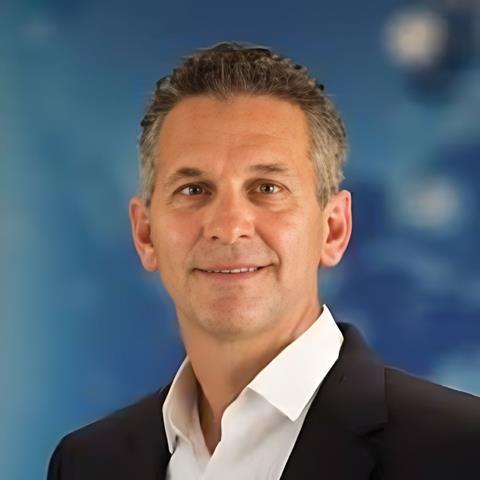
After the keynote, Jeremy Keating joined Dr Khan and Chris on stage and explained how lean practices are integrated from the very beginning of product and process development. “Lean isn’t just one department; it has to be the entire organisation. Everyone has a role and a process that can be measured,” Keating noted, emphasising that lean success depends on broad organisational involvement. At Stellantis, this includes training team leaders early in lean principles and involving them in digital simulations and virtual reality exercises to preemptively resolve design and production issues. Keating added, “Our goal is to enhance value-added activities and reduce waste, ensuring that people contribute to efficient, quality-focused production.”
Both speakers agreed that lean is as much about people as it is about processes. Keating highlighted the importance of collaborative relationships with union counterparts, which help engage all levels of staff and foster a shared commitment to lean principles.
31st October
“We’re going to have to do things through simulation,” Jamie Moore, senior principal engineer, Toyota Motor NA
In an era of constant technological shifts, manufacturing flexibility is crucial for automotive companies to remain competitive. At our following session, Jamie Moore, senior principal engineer, Toyota Motor North America Research and Development Centre from Toyota and Christopher Glover from Volkswagen discussed strategies to scale manufacturing agility and adapt to rapid industry changes.
Jaime described how evolving roles and skills are essential to meeting these demands. “The average engineer’s skill set is expanding,” Moore said, pointing to Toyota’s strategy of rotating team members across functions. This approach builds a more collaborative, adaptable workforce ready to handle increased production demands. “We’re focusing on transferable skills so that you can use those as building blocks to set yourself up for innovation,” she added.
Volkswagen’s Christopher Glover discussed the importance of labour retention in the US, especially in regions with high turnover. “When I got to Chattanooga in the beginning of 2022, we had a labour attrition of 35%. We are turning over our labour three times or a third of our labour every year. And we’ve brought that down to 10% now. So we must be doing something right.,” he shared. This stability supports ongoing skill development and flexibility in production.
Both leaders emphasised digitalisation, including the use of digital twins and simulations, as key to efficient design and manufacturing collaboration. “We can’t build prototypes for everything anymore; we’re going to have to do things through simulation,” Moore explained.
31st October
Building a flexible manufacturing highway at Volkswagen Chattanooga
In today’s kick-off keynote at AMS Evolution North America 2024, Christopher Glover, executive vice-president, Volkswagen Group of America, Chattanooga Plant, took the stage to share a compelling perspective on why flexibility is no longer just a strategic advantage but a business essential. Emphasising the need for “engineered flexibility,” Glover highlighted how the Chattanooga plant’s unique dual-body system allows both electric and combustion models to run on a single line, adapting swiftly to shifting market demands.
“Flexibility has to be engineered into your production process from the very early phases of concept and layouts,” Glover explained, underscoring VW’s commitment to adaptable infrastructure. This forward-thinking design, combined with automation and human cross-training, enables Chattanooga’s workforce to manage rapid changes in production with ease. “The industry is transforming at an exponential rate, and the only constant in our business is change,” he added, noting that Chattanooga’s versatile production setup allows Volkswagen to weather supply chain challenges and embrace future tech, from EVs to connectivity.
Supply chain management emerged as a recurring theme, with Glover recounting the many challenges VW has faced in recent years—from geopolitical shifts to cyber threats. His approach is proactive: close collaboration with suppliers and real-time logistics monitoring allow Volkswagen to stay agile. And with customer demands rising for features like over-the-air software updates, Chattanooga’s infrastructure is geared up to keep pace.
Stay tuned for more updates!
31st October
AMS Evolution 2024: Day 1 wrap-up and what’s next
Our wrap-up video for Day 1 of AMS Evolution 2024 is here! Yesterday was an inspiring start, with key discussions that set the foundation for today’s main event.
Our chief content officer Christopher Ludwig captured the excitement perfectly: “We’re not just talking about the future of automotive manufacturing – we’re shaping it, one solution at a time.”
Day 1 featured a welcome session with some of our speakers who discussed digital transformation, sustainable practices, and supply chain resilience in automotive manufacturing. Attendees got an exclusive look at some of the latest tech innovations driving efficiency and productivity in manufacturing. It was a fantastic preview of the insights and expertise this event has to offer.
Today, we’re diving even deeper with the main agenda! Expect powerful sessions on:
- Cutting-edge solutions to drive sustainable growth
- Strategic approaches to optimise production lines
- Practical pathways to enhance supply chain resilience and much more
Don’t miss out on the highlights from Day 1 in our wrap-up video, and join us today as we continue to explore what’s next for the automotive industry!
30th October
AMS Automotive Evolution North America 2024 officially kicks off!
AMS Evolution NA 2024 kicked off with an electrifying “Meet the Speaker” session, setting the stage for innovation, adaptation, and industry-shaking insights in automotive manufacturing. Leaders including Christopher Glover from VW Chattanooga Plant, Jeremy Keating from Stellantis, Dr. Sardar Asif Khan from Stellantis, Fernando Bera from ZF, and Paul Belanger from Gestamp dove into the industry’s most pressing transformations and future challenges.
From navigating the EV revolution to fostering a workforce fit for tomorrow, here are the must-know highlights and powerful quotes that captured the audience’s attention.
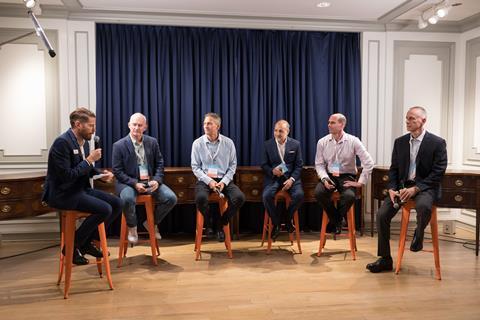
Electrification & transformation
Christopher Glover of Volkswagen captured the spirit of rapid change, describing the shift to electrification as “truly incredible” and the fastest-paced evolution he’s seen in his 40-year career. Reflecting on the pride of innovation, he added, “At the end of a challenging day, I get in my car and think, ‘Hell, we built this thing.’” Dr Asif Khan of Stellantis agreed, noting that AI and digitisation are “transforming every part of the process,” making fast, data-driven decisions a game-changer for future-ready manufacturing.
Cost efficiency & competitive edge
As the race for efficiency heats up, Stellantis’ Jeremy Keating underscored the importance of staying agile with tight budgets, saying, “It’s about finding ways to launch new programs without capital expenditure.” With global competition rising, especially from Asia, he explained how flexible assembly lines and in-house retooling have become critical for success.
Workforce adaptability
Speakers highlighted the importance of adaptability and curiosity in tomorrow’s workforce. ZF’s Fernando Bera shared, “Curiosity drives innovation, especially on the shop floor,” while Gestamp’s Paul Belanger pointed to emotional intelligence as a “vital skill for working collaboratively.” Glover wrapped it up perfectly with four traits for success: “Passion, resilience, teamwork, and leadership.”
Stay tuned for more live updates as AMS Evolution NA 2024 unfolds!
29th October
AMS Automotive Evolution North America 2024 starts tomorrow!
The AMS Automotive Evolution North America conference is going live tomorrow in Dearborn, Michigan. This highly anticipated event kicks off with an evening networking reception, giving attendees an early chance to connect and discuss the trends shaping automotive manufacturing in North America.
Christopher Ludwig, AMS’s Chief Content Officer, will start the evening by introducing key topics and previewing what’s in store for the conference. The agenda for tomorrow includes insights from several industry leaders poised to shape tomorrow’s automotive landscape. Christopher Glover from Volkswagen Group of America is expected to discuss sustainability in manufacturing, while Stellantis’s Jeremy Keating and Dr. Sardar Asif Khan will bring their expertise in digital manufacturing. Fernando Bera of ZF Transmissions will delve into powertrain innovations, and Paul Belanger from Gestamp will address advancements in materials and production efficiency.
With each speaker bringing a unique perspective, this opening session promises valuable discussions around innovation, sustainability, and the digital transformation of the sector. Stay tuned as we cover these insights and much more, sharing key takeaways from the presentations and conversations.
28th October
Mexico’s automotive sector is experiencing a surge in foreign investments, driven by strategic positioning and competitive production costs. Companies like Tesla, Audi, and BMW are expanding EV production in the region, capitalising on Mexico’s skilled workforce and favourable trade relations. These investments align with Mexico’s ambition to be a leader in electrification, attracting significant European and Chinese players, including ZF and BYD.

However, US-Mexico trade policies may limit Chinese companies to the Mexican and Latin American markets due to geopolitical sensitivities. This growth in automotive manufacturing highlights Mexico’s adaptability in the global shift toward EVs.
Despite these advancements, the industry faces challenges, including infrastructure development and navigating evolving trade policies. Nonetheless, with a focus on innovation and sustainability, Mexico is set to solidify its role as a key player in North American automotive production.
Explore Mexico’s rise in EV and automotive innovation
28th October
Ford, GM, and Stellantis are navigating complex challenges in the EV sector, from slowed demand and trade barriers to competitive pressures, especially from China. The Inflation Reduction Act’s stringent local content rules complicate eligibility for tax credits, particularly as EV battery materials largely depend on imports from China, leading to rising production costs. Ford has notably pivoted toward hybrid models amid significant EV financial losses, adjusting its production strategies to maintain viability in a changing market.

GM, meanwhile, is addressing similar pressures by reducing its North American EV production plans and delaying some investments. To adapt, GM has partnered with Hyundai to optimise vehicle development, sharing costs and expertise to maintain market competitiveness. Stellantis, facing its own EV-related hurdles, is similarly adjusting production strategies.
These combined efforts underscore how the “Big Three” automakers are recalibrating in response to shifting market dynamics, government policies, and evolving consumer preferences in the EV landscape.
For more details, Read the full article here
24th October
Marc Dugas, Ford’s battery pack assembly specialist, is driving innovation in EV battery production with a focus on simplification and efficiency. While speaking with AMS earlier this year on using the POSIWID (Purpose Of the System Is What It Does) framework, Dugas emphasised the importance of collaboration between design and manufacturing teams to eliminate unnecessary components and streamline the assembly process. This approach is not only improving production speed but also making scaling more practical as demand for EVs increases.
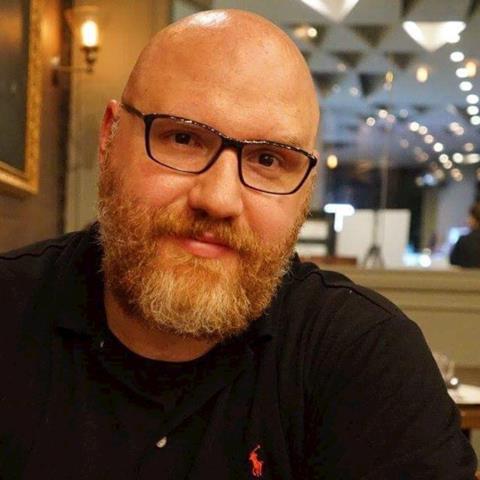
Dugas will present these strategies at the AMS Evo 2024 event, where he will speak in the “Accelerating EV Battery Integration” session. He will share his insights on how Ford is streamlining battery pack assembly through process simplification, component reduction, and enhanced collaboration between engineering and manufacturing teams.
According to Dugas, “Production efficiency is about deleting components and processes.” His philosophy revolves around reducing non-value-added efforts and aligning teams across the production chain, ensuring that Ford’s EV battery assembly processes are both faster and more scalable as the company expands its electric vehicle portfolio
this is how dugas supercharges ford’s battery pack assembly using posiwid. read it here
24th October
Chris Glover, Executive Vice-President, Volkswagen Group of America, Chattanooga Plant, has overseen operations since 2022, and has highlighted the importance of flexibility, digitalisation, and workforce training in managing the plant’s transformation. Speaking to AMS, Glover explained, “The only constant in our industry right now is change […] The automotive industry is currently going through the biggest transformation it has seen in over 100 years – it’s not an evolution, it’s a revolution.”
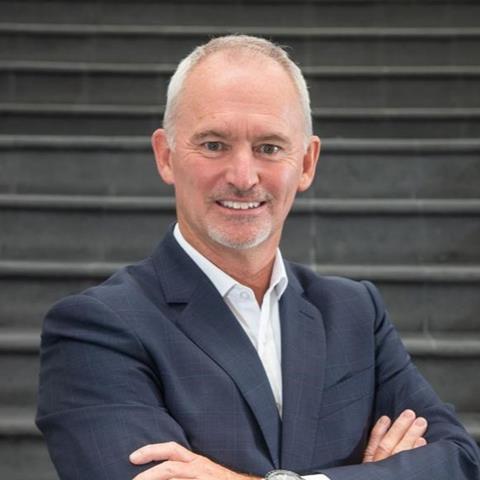
This forward-looking approach is what enables Chattanooga to adapt to the changeable demands of automotive production, from electrification to advanced manufacturing processes, and under the Glover’s leadership, has become a beacon for handling market volatility and the complexities of producing both EV and ICE vehicles.
At AMS Evolution 2024, Glover will deliver a keynote address on the complexities of transforming automotive manufacturing. This process is akin to managing a multi-lane highway, and strategic investment and meticulous planning are essential for enhancing flexibility across vehicle production lines, plant technologies, and workforce development.
Not stopping there, Glover will also speak on the panel, ”Scaling manufacturing agility in the face of constant automotive change.” This discussion will delve into the strategies and tools essential for automotive manufacturers to enhance their flexibility and responsiveness and explore how to achieve greater operational agility to keep pace with evolving market demands.
Read the article: Change is the only constant for Volkswagen Chattanooga EVP Christopher Glove




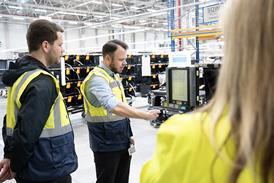






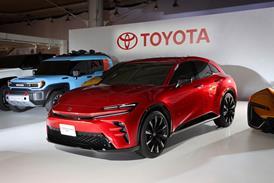


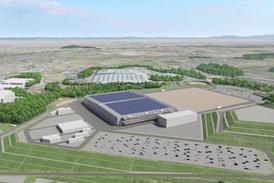
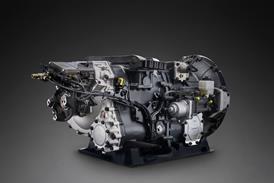
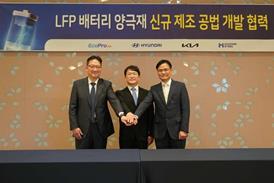
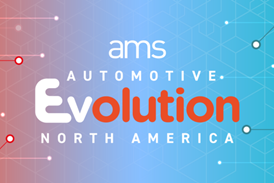



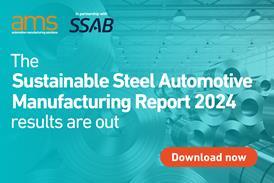




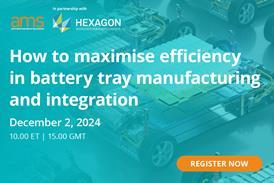

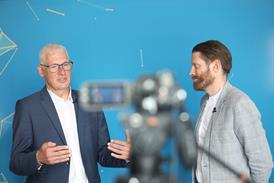
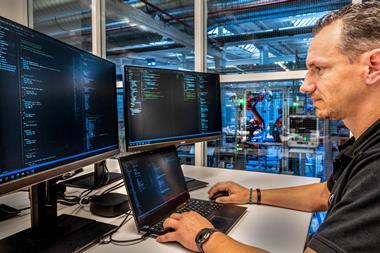
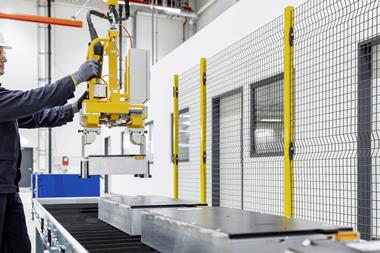

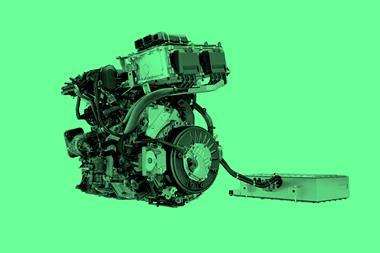
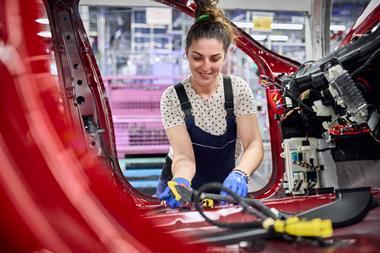
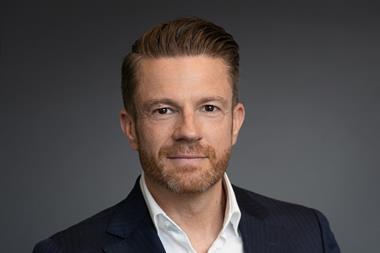


No comments yet